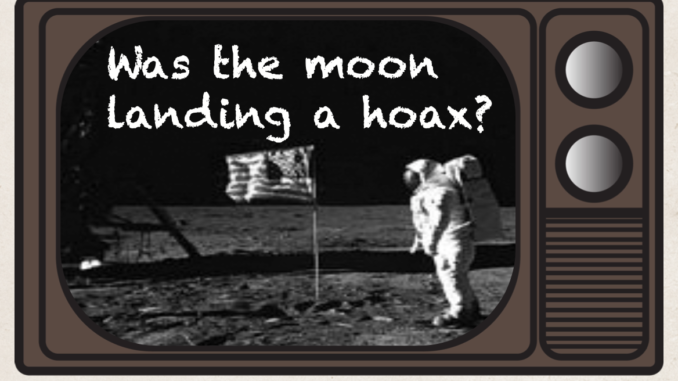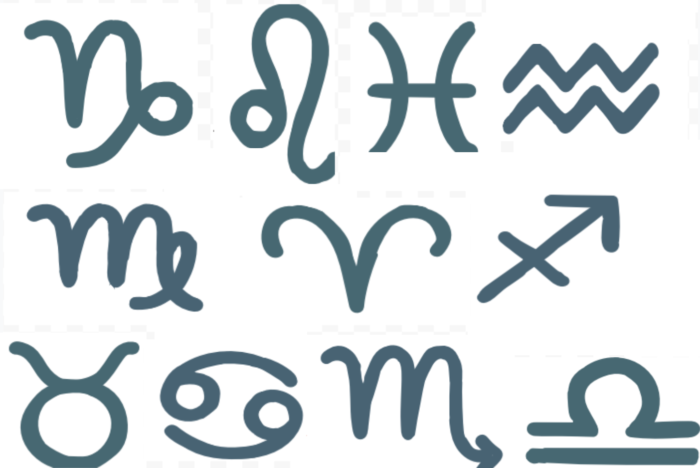
design: Teresa Christian
Whether it be thinking the Earth is flat, the United States’ government is hiding aliens, or celebrities have died and been cloned, conspiracy theories are significant in creating discussion in society.
Conspiracy theories are huge within society and social media. These theories, whether true or false, are believed by typically large groups of people.
“A conspiracy theory is an alleged plot by a group of people acting in secret to achieve a sinister goal,” University of Kent Social Psychology professor Karen Douglas said. “Conspiracy theories have always been with us, and some scholars argue that we are even hard-wired to believe in conspiracy theories.”
With so much unknown in the world, people will often search for answers to fill in any gaps of unknown information in their brains, which is where people can sometimes find themselves filling it with conspiracy theories.
“Our brains can’t really handle the unknown, so when we see, hear, or feel something we are unsure of, we tend to make it fit into something we do know,” AP Psychology teacher Jamie Paoloni said. “Generally, conspiracy theories tend to develop around things we don’t know. This could be an event we are unclear as to what happened (JFK assassination, what happened to Atlantis, etc.), or even groups of people that we don’t know and are strange to us (Republican vs. Democrat).”
People believe in a plethora of conspiracy theories for different reasons, but there is psychology to back up why this may be. One psychological effect that can influence people to believe in conspiracy theories is confirmation bias.
“Confirmation bias is the tendency we all have to only seek out information that confirms our beliefs, while conveniently ignoring any information that will prove us wrong. Confirmation bias is one of those tricks that we use on ourselves to make us feel better,” Columbus State Psychology professor Ron Elizaga said. “Specifically, we don’t like feeling wrong. So, in order to avoid that feeling, we only look for information that will prove us right and validate our thoughts.”
Once people start to think something could possibly be true, they seek out ways to confirm their beliefs, instead of listening to facts that could disprove it. People often don’t like being wrong, and that goes for conspiracy theories as well.
“This is what contributes to conspiracy theories – an individual will only seek out information that proves the conspiracy true, even though there might be mountains of evidence for the contrary,” Elizaga said.
As people try to piece together the unknown, in which they form conspiracy theories, they are attempting to fulfill their psychological needs. There are two different types of psychological needs.
“Research suggests that people are attracted to conspiracy theories when one or more psychological needs are frustrated,” Douglas said. “The first of these needs are epistemic, related to the need to know the truth and have clarity and certainty. The other needs are existential, which are related to the need to feel safe and to have some control over things that are happening around us, and social, which are related to the need to maintain our self-esteem and feel positive about the groups that we belong to.”
One example of a theory commonly brought up when discussing conspiracy theories is the idea that the earth is flat. This is an example of a conspiracy theory that has been proven wrong in science because the earth is in fact not flat, but a spherical shape. Still, believers, called Flat Earthers, ignore that and remain still in their belief.
Another psychological effect that impacts people’s beliefs in conspiracy theories is echo chambers.
According to Elizaga, echo chambers are “an environment where you only encounter beliefs that coincide with your own. This is especially easy with social media where anyone could put out information (true or false) without any vetting.”
With echo chambers, people in them only surround themselves with people who agree with what they believe in, therefore not hearing any other sides to their theories and ideas. This can push people deeper into their belief, and again confirm that what they believe is “true”.
“When other people agree with our false beliefs, that creates something else called the overconfidence phenomena, which makes us convinced we can’t be wrong,” Paoloni said.
Holding a belief in conspiracy theories can be linked to psychological effects on a person. Conspiracy theories can shape the behavior of people once they believe in them.
“Conspiracy theories can affect people’s attitudes, intentions, and behaviors,” Douglas said. “Conspiracy theories historically have been linked with prejudice, genocide, risky health behavior, climate denial, and more recently some quite disturbing behavior related to QAnon and COVID-19 conspiracy theories.”
It’s important to note and acknowledge all of the dangers of conspiracy theories because it can be easy for some people to slip into a strong belief in a theory.
“Anyone can fall prey to conspiracy theories if they have psychological needs that are not being met at any particular time,” Douglas said.
While it can be said that some conspiracy theories, such as the theory of Bigfoot, do not have any impact on the lives of all Americans, there are other conspiracies that will have an everlasting effect on American society.
Governmental conspiracy theories have recently been a lot more prevalent in society. Ranging from theories such as QAnon to one of the most well-known theories, the election of 2020 was stolen, there are many groups who believe in these different theories.
One of the most prevalent theories in society today is the theory of QAnon, which is that the Democratic Party secretly has a mission to exploit children and use them in a sex trafficking ring out of a pizza parlor in New York, according to Government Teacher John Carmichael.
As well as the theories of QAnon and the stolen election of 2020, Carmichael said there are also some smaller conspiracies to exist, such as the theory that Jeffrey Epstein was murdered by political elites and the theories of John F. Kennedy’s assassination.
And in recent times, it has seemed a lot easier for these ideas to spread. With the evolution of modern media, these figureheads and conspiracists have had an extremely easy way of pushing their platforms all over the media.
“He [Trump] transcends alternative media, mainstream media, and he is an incredibly powerful bully pulpit,” Carmichael said. “At the high point of his Twitter use, about 20 percent of people who were on Twitter followed him.”
As well as former President Donald Trump spreading theories, other prominent faces in society spread false information and conspiracies.
“But it [QAnon] has reached mainstream,” Carmichael said. “Tucker Carlson has been up on Fox News talking quite a bit about QAnon. And he gets three million viewers a night, which is more mainstream media.”
According to CNN, many well-known celebrities, such as Elon Musk and Dinesh D’Souza, have been pushing the rhetoric that the man who attacked Paul Pelosi on Oct. 28 was a lover of Nancy Pelosi, who attacked him after the two got into a fight. It is said that there is no evidence to show that these two had any relation to each other.
While some of these extremely prominent theories may not seem to have an effect on society, some of them pose danger to communities, and even the government as a whole.
On Jan. 6, 2021, former President Trump gave a speech to thousands of his supporters, stating that “all of us here today do not want to see our election victory stolen by emboldened radical-left Democrats, which is what they’re doing. And stolen by the fake news media. That’s what they’ve done and what they’re doing. We will never give up,” according to NPR.
Shortly after, Trump gave these remarks on Capitol Hill, he told the crowd that they will “fight. We fight like hell. And if you don’t fight like hell, you’re not going to have a country anymore,” according to NPR.
After those words, rioters went to the Capitol building during the counting of electoral votes. On that day, around 140 police officers were assaulted, with $1.5 million caused in damages, according to the United States Department of Justice. There was even a noose outside the building, with rioters chanting “hang Mike Pence”, according to CNBC.
To this day, people still believe that the 2020 election was illegitimate. Polls run by Poynter before July 22, show that 70 percent of republican voters don’t believe that President Joe Biden legitimately won the election.
During a Twitter conversation with an anonymous user, the user stated that voting machines were found as malfunctioning, and republican votes got switched over to democratic. As well as this, it was found that dead people were voting, crates of republican votes were thrown in ditches, and illegal immigrants were voting.
“The problem is, you have legitimate people claiming the election was fraudulent, even the most high-profile people, like Trump, without proof,” Carmichael said.
While election deniers are still prevalent in our society, recent voting trends, especially after the 2022 midterm elections, show that these election denying candidates may be trending downward on popularity.
“If you look at these election deniers that Trump put forward and supported, out of around 280 people, only a handful of them won,” Carmichael said. “It’s a good signal of the health of our voting system.”
In recent years, it has become increasingly common to see far-fetched theories and ideas circulating in the media consumers digest. Social media has created the perfect environment for large swathes of people to communicate about their opinions or ideas, whether the ideas are accurate or not.
Joseph Uscinski, professor at the University of Miami and author of American Conspiracy Theories, a book that examines why people believe in conspiracies, explained that social media does not necessarily lead to more conspiracy theories but instead leads to more people believing them.
These ideas spreading throughout a large part of the population can be incredibly harmful and can lead to problems. This was evident in the Jan. 6, 2021 protests that occurred in Washington D.C.; many of the people present believed the 2020 U.S. election was stolen due to misinformation spread through social media platforms.
“I read false information on social media all the time, but when I see an alarming or interesting headline, I always look it up and do research, which helps solve a lot of issues. It’s really easy to see misinformation and even easier to believe it,” senior Neil Hariths said.
The problem arises when information seen on social media is taken for truth with no further research or fact-checking done. This can create a false narrative and cause many people to form opinions on a topic that are based on misinformation.
Social media is also very effective at organizing large gatherings or events. In 2019, a user created an event on Facebook to storm the Area 51 base in Nevada. The event eventually spiraled into a multi-day music festival as well and saw a turnout of more than 1,000 people, according to Vox.
Limiting one’s use of social media is usually not viable, and social media platforms have become incredibly popular as a way to receive news.
“I use social media to receive news. I make an effort to use other sources, but with how much I already use platforms like Instagram, using social media is really convenient,” Hariths said.
Although it may seem overwhelming trying to sort between what is accurate and what is fictitious, there are some simple steps one can take to avoid believing misinformation.
Uscinski recommends proceeding with caution when reading news on social media sites and to not specifically seek out a specific news source or story. One can also stick to trusted media publications or use free online tools such as factcheck.org.
Many politicians and celebrities utilize social media such as Twitter as a quick way to reach their base. This has changed how information is relayed to the people.
Due to how prevalent this has become; social media companies have a lot of power on what and who they allow on their platforms. In early 2021, Twitter banned then-president Donald Trump’s personal account. They cited his tweets leading up to the Jan. 6 protests and claimed he was inciting violence. While some believed this was an essential decision, others criticized Twitter for creating a platform with a lack of free speech, according to CNBC.
Recently, business magnate Elon Musk purchased Twitter for $44 billion, according to The New York Times. Musk has made his intentions to decrease censorship and allow anything on the platform clear.
On Nov. 19, 2022, Musk reinstated former President Trump’s personal twitter. Musk first posted a poll to his account asking users whether the 45th president’s account should be restored, citing the results of the poll he made his decision, according to Politico. Allowing users to post anything on the platform will allow misinformation to spread more easily.


